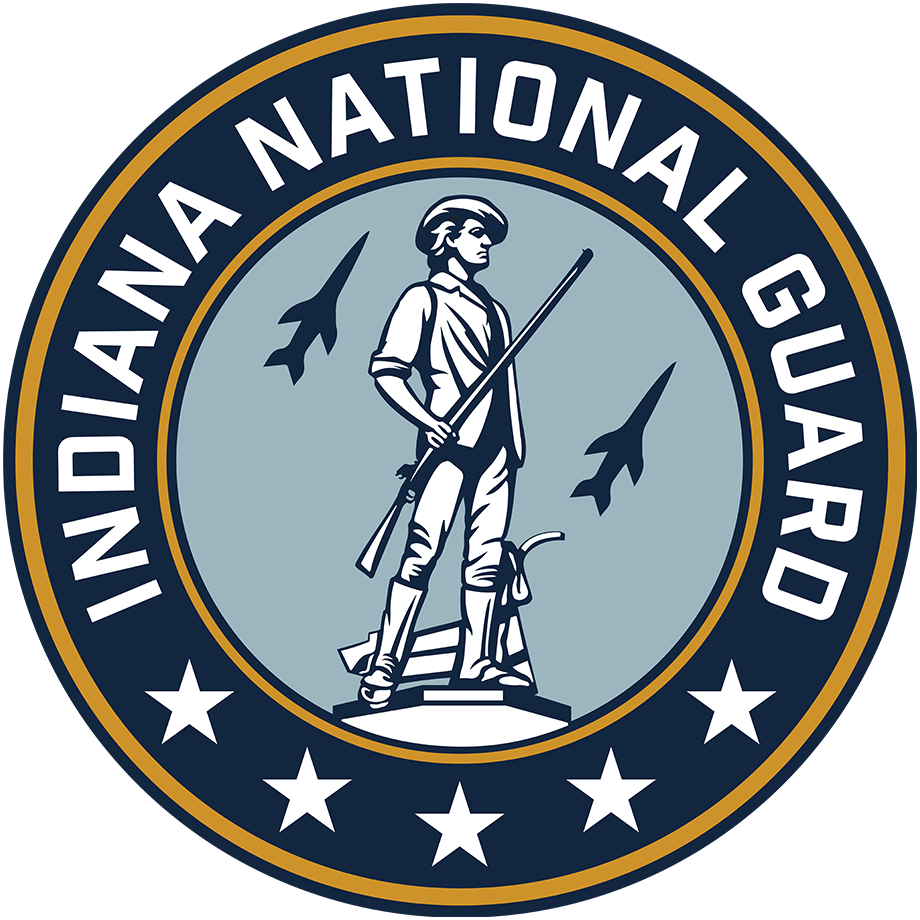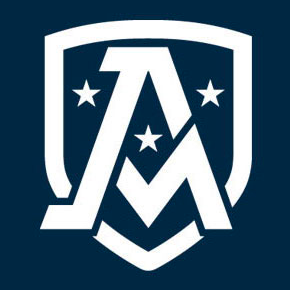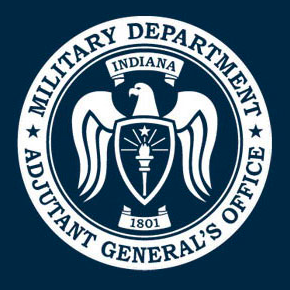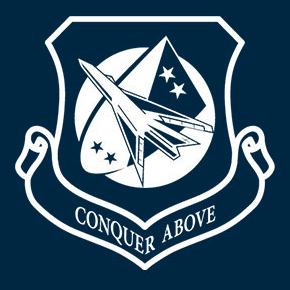Substance Abuse Prevention Program
THE VETERANS CRISIS LINE PROVIDES 24/7 CONFIDENTIAL CRISIS SUPPORT
FOR SERVICE MEMBERS AND THEIR LOVED ONES
If you or someone you know is currently experiencing thoughts of suicide, emotional distress or a mental health or substance use crisis, please CALL 988 + 1, TEXT 838255 or CHAT to speak with a trained crisis specialist 24/7. If your emergency situation requires immediate assistance from the police, fire department or ambulance/medical personnel, CALL 911.
Quick Exit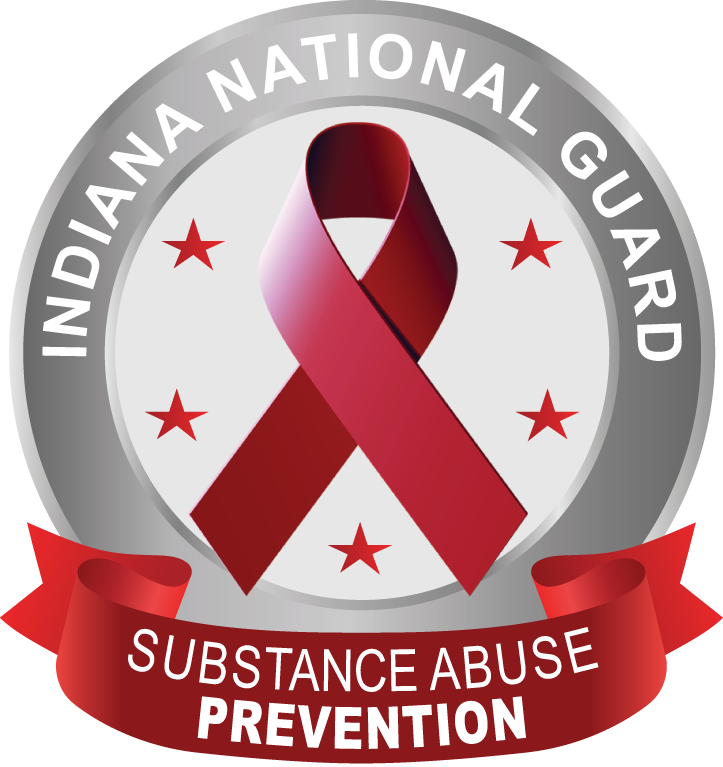 The Indiana National Guard is working to emphasize and encourage help-seeking behaviors among service members and their families. Abuse of alcohol or use of illicit drugs by both military and civilian personnel is inconsistent with Army values, standards of performance, discipline and the readiness necessary to accomplish the Army’s mission.
The Indiana National Guard is working to emphasize and encourage help-seeking behaviors among service members and their families. Abuse of alcohol or use of illicit drugs by both military and civilian personnel is inconsistent with Army values, standards of performance, discipline and the readiness necessary to accomplish the Army’s mission.
Learn More About Substance Abuse
Alcohol misuse contributes to:
- Behavioral health issues
- Misconduct/crimes
- Suicidal risk behaviors
- Other high-risk behaviors that threaten readiness and well-being
For most people, drinking is a part of a good time, celebration or other life event, and the worst consequence they might encounter is an occasional hangover. But for others, alcohol becomes a more serious problem. A short-term problem might be having too much to drink over a weekend. A long-term problem could be when drinking becomes a daily occurrence. Some signs of a problem include:
- Slurred speech
- Repeating themselves over and over
- Uncontrollable laughter
- Lack of balance and loss of coordination
- Aggression or anger over the smallest slights
- A flushed face and bright, teary eyes
- Losing control of emotions, such as sobbing for no reason
- Difficulty with fine motor control, such as the inability to write or to shake hands
- Confusion or inability to focus
- An inability to remember things that just happened
- Lowered inhibitions, such as doing things they would never normally do
Review the bulleted list. The more things you say "yes" to, the more important it will be that you take action or seek help from a health professional.
- Missing work or school
- Increased tolerance of alcohol
- Blacking out
- Legal issues
- Affecting personal relationships
- Uncharacteristic mood swings
- Increased use of heavier substances, such as illicit drugs
- Significant change in sleeping patterns
- Your next drink is all that is on your mind
- Waking up shaky and feeling the need for more alcohol to calm the jitters (withdrawal)
- Concerned about your own drinking
It is important to reach out to professionals who can help you figure out what the next step should be. Talk to your doctor, a therapist or counselor, or maybe go to a 12-Step Alcoholics Anonymous meeting in your community.
Findings from the 2018 Department of Defense Health Related Behaviors Survey of Active-Duty Military Personnel indicated that 34 percent of service members were engaged in binge drinking (consuming five or more drinks on the same occasion for men and four or more drinks on the same occasion for women), 9.8 percent drank heavily (binge drinking on at least one or two days a week), and 6.2 percent experienced one or more serious consequences from drinking.
If you drive while you are impaired, you could be arrested, receive an Article 15 or worse. You could cause serious injury, kill yourself or even kill someone else. About 30 percent of all traffic crash fatalities in the United States involve drunk drivers with blood alcohol content (BAC) levels of 0.08% (80 mg/dL) or higher. According to the National Highway Traffic Safety Administration (NHTSA), every day, about 37 people in the United States, or one person every 39 minutes, die in drunk-driving crashes. In 2021, 13,384 people died in alcohol-impaired driving traffic deaths — a 14% increase from 2020. These deaths were all preventable. In Indiana in 2022, the Army National Guard reported 29 driving under the influence (DUI) friendly force information requirements (FFIRs). We can and must do better.
Watch your drink
The odds of staying safe and avoiding unwanted intimate encounters are increased when you choose to drink in groups, especially among trusted friends. Be sure to keep track of what you’re drinking, avoid those who are drinking too much, and always keep your drink in sight, in your hand, to avoid the possibility of it being spiked.
Always have a plan to get home
Avoid the possibility of driving drunk by making a pact with yourself that you will never, ever get behind the wheel while intoxicated. Limit the amount you drink. Give your car keys to a friend, count on a designated driver and keep ride-sharing apps on your phone for easy access. Keep in mind your future goals and those who might bear the consequences of your actions.
Eat something before or while drinking
Drinking on an empty stomach magnifies the effects of alcohol. Have dinner before you go out and make a point of eating little snacks throughout the night.
Hydrate with water, and count your drinks
Avoid binge drinking by always being aware of how much you’re drinking, fill up with water before and between rounds, and look to friends to hold you accountable for how many shots, drinks or beers you’re having in an evening.
Marijuana
- Although many states have legalized marijuana, the federal government considers it an illegal substance.
- Therefore, if you are a soldier in the United States Army and are caught using marijuana or simply in possession of it, you can be arrested, given an Article 15, and even incarcerated.
- The amount of THC (psychoactive compound in cannabis) in marijuana has been increasing steadily in recent decades, creating more harmful effects in some people.
- It is unlikely that a person will fail a drug test or get high from passive exposure by inhaling secondhand marijuana smoke, so don’t expect to use that as an excuse if you test positive for THC on your drug alcohol test (DAT).
- There are no reports of teens and adults dying from using marijuana alone, but marijuana use can cause some very uncomfortable side effects, such as anxiety and paranoia and, in rare cases, extreme psychotic reactions.
The Army is now testing for Delta 8
Delta-8 Tetrahydrocannabinol (THC) was added to the drug test panel effective July 9, 2021 and Department of Defense Instruction (DODI) 1010.16. The Army Resilience Directorate has published a policy to provide notification of the addition of Delta-8-THC to the drug testing panel and guidance for Delta-8 positives.
- Delta-8-THC Products: Can be found in CBD gummies, creams, and tinctures, and is sold over the counter (not all inclusive).
- Use of Delta-8-THC: Violation of Article 92, UCMJ (Failure to obey an order or regulation) which prohibits the use of products made or derived from hemp, including CBD, regardless of the product’s THC concentration, claimed or actual and regardless of if such products can be lawfully bought or sold. Reference: Office of the Under Secretary of Defense Memorandum Adoption of Punitive General Orders to Address Use of Hemp Products.
Prescription Drugs
Prescription drug misuse can have serious medical consequences and is one of the most common forms of substance abuse. People often do not notice that they have a problem with misusing prescription drugs until they try to stop using them. Some prescription drugs alter the brain’s chemical makeup, and require medical assistance for withdrawal. To protect yourself from adverse side effects and addiction to prescription drugs, is always best never to use drugs unless they have been prescribed by your doctor, and to follow dosing and other instructions to the letter.
The three classes of medication most commonly misused are:
- Opioids are usually prescribed to treat pain, and include drugs like Codeine, Vicodin and OxyContin.
- Central Nervous System Depressants, tranquilizers, sedatives and hypnotics usually prescribed to treat anxiety and sleep disorders include drugs like Valium, Xanax, Klonopin, Lunesta, Ambien and other sleeping pills.
- Stimulants most often prescribed to treat attention-deficit hyperactivity disorder (ADHD) include Adderall and Ritalin (and also include the illicit drug Meth).
Fentanyl
Drug-involved overdose deaths, including illicit and counterfeit drugs and prescription opioids, are an increasing public health problem that harms countless families and communities. It’s important to be aware of the dangers of illicit drugs and how to mitigate your risks of accidental death due to fentanyl.
What is Fentanyl?
Fentanyl is a very strong opioid. It’s tasteless and odorless, and an amount about the size of two grains of salt can cause an adult to overdose. While fentanyl can be used by medical providers to treat extreme pain or for chronic pain management, it is increasingly being found laced into illicit/counterfeit drugs or other substances sold through illegal drug markets.
MORE: DOD hopes to raise awareness about dangers of Fentanyl
One Pill Can Kill
The U.S. Drug Enforcement Administration has reported a sharp nationwide increase in the lethality of fentanyl-laced fake prescription pills. Drug poisonings are the leading killer of Americans between the ages of 18 and 45. DEA Laboratory tests show that six out of ten fake prescription pills laced withfentanyl contain a potentially lethal dose
MORE: One Pill Can Kill
Where Fentanyl Lurks
Fentanyl comes in many forms, including powder, liquid, nasal spray, skin patch or sometimes as a “lollipop” or tablet. While pills and powders are the most commonly laced substances, almost any illicit substance can be laced with fentanyl. Often, these counterfeit pills look identical to the real thing, making it impossible to spot the difference. Most cases of fentanyl-related harm, overdose and death in the United States are linked to illegally made fentanyl sold through illegal drug markets, according to the Centers for Disease Control. If a drug wasn’t prescribed to you, it runs the risk of being laced with fentanyl.
MORE: Centers for Disease Control
How to Treat a Fentanyl Overdose – Call 911
If you suspect someone has overdosed on Fentanyl or other drugs, the most important step you can take is to call 911 so they can receive immediate medical attention. Once medical personnel arrive, they will administer naloxone if they suspect an opioid drug is involved. Naloxone is available as an injectable (needle) solution and nasal sprays (NARCAN® and KLOXXADO®). People who are given naloxone should be monitored for another two hours after the last dose of naloxone is given to make sure breathing does not slow or stop.
MORE: National Institutes of Health, Naloxone Drug Facts
Find Naloxone in Indiana
To increase the amount of naloxone available in communities across Indiana, the Indiana Department of Health (IDOH) has used state and federal funds to provide naloxone to local health departments.
MORE: Local Health Departments
Nicotine
Nicotine is a highly addictive chemical compound found in tobacco plants. All tobacco products contain nicotine, including cigarettes, cigars, chewing tobacco and most e-cigarettes. These products are easy to become dependent on and difficult to quit. In addition to addictive nicotine, they contain a toxic mix of chemicals that can cause fatal lung diseases, including COPD* and cancer. Vaping, which often delivers even more nicotine than cigarettes, increases your heart rate and likelihood of having a heart attack. Emerging data suggests links between the use of e-cigarettes and chronic lung diseases and asthma, according to Johns Hopkins Medicine.
*COPD is chronic obstructive pulmonary disease
MORE: U.S. Food and Drug Administration, Why Tobacco Products Are Addictive
Substance Abuse in the Indiana National Guard
- Our Services
- Limited Use Policy
- Self Referral
- Command Directed Referral
- Illicit Positive
- What happens when you fail a drug alcohol test (DAT)
- Unit training and education, briefs and presentations
- Self-referral services
- Information on substance abuse, policies and available services and resources
- Risk inventories and reintegration-unit risk inventories
Our services include:
- The Limited Use Policy facilitates and encourages self-identification and self-referral of alcohol and other drug abusers.
- The Limited Use Policy prohibits the use by the government of protected evidence against a soldier in actions under the Uniform Code of Military Justice (UCMJ). Additionally, the policy limits the characterization of discharge to “Honorable” if protected evidence is used.
- A self-referral is when a soldier voluntarily comes forward and admits that he or she has a substance abuse problem BEFORE he or she knows about a urinalysis test (DAT), not AFTER.
- If the soldier self-refers to the Commander, the requirement to initiate separation proceedings does not apply.
- Drug self-referrals who complete treatment cannot self-refer again upon relapse. Soldier is considered a rehab failure and will be processed for separation. Alcohol self-referrals can self-refer as many times as needed.
Who can a Soldier self-refer to?
- Commander
- ARNG Risk Reduction Office, 317-247-3300, Ext. 64335
- NCO or Officer in their Chain of Command
- Military Chaplain (must waive confidentiality)
- Behavioral Health Officer
Command directed referral happens when a commander or supervisor observes, suspects, or otherwise becomes aware of the soldier whose job performance, social conduct, interpersonal relations, physical fitness or health appears to be affected adversely by suspected use or misuse of alcohol or other drugs.
Army Substance Abuse Program (ASAP) Enrollment - DA Form 8003
Any soldier identified as an illegal drug user through an illicit positive obtained by drug testing requires a mandatory referral to the Army Substance Abuse Program (ASAP) office. Reference: AR 600-85 Chapter 7-3
Soldiers who test positive for illicit drugs for the first time will be evaluated for dependency, disciplined as appropriate, and processed for separation within 30 calendar days of the company commander receiving notification of the positive result from the Army Substance Abuse Program (ASAP).
The Soldier:
- Receives TWO flags: one for separation and one for the drug offense.
- Cannot be promoted or attend schools while flagged.
- Will have GI bill, TA and other federal funding terminated for the duration of the flag.
- Is added to the National Instant Criminal Background Check System (NICS) and will remain in this system for one year following a positive test.
- Will be counseled by the commander and ordered to divest any firearms and ammunition owned or in possession of immediately.
- Firearms will be returned after one year of negative tests. If caught with firearms during that one-year probationary period, the Solider can be charged with a felony.
Contact Us
211 Indiana
Indiana 211 is a free service that connects Hoosiers with help and answers from thousands of health and human service agencies and resources right in their local communities - quickly, easily, and confidentially.
Phone (Mon-Fri 7a-7p ET):
Dial 2-1-1 or 1-866-211-9966
Text (Mon-Fri 8 a.m.-5 p.m.):
Text your ZIP Code to 898-211
Indiana National Guard Resources
Risk Reduction Coordinator
317-247-3300, Ext. 77052
Prevention Coordinators
317-247-3300, Ext. 64339
Indiana Army National Guard
Behavioral Health Resource Line
317-247-3155
Hours of Operation: M-F 7:30 a.m. to 4 p.m.
Chaplain:
317-247-3300, Ext. 73466 or 63005
Indiana Air National Guard
181st Intelligence Wing:
DPH: 812-877-5726
Chaplain: 812-877-5192
122nd Fighter Wing:
DPH: 260-478-3733
Chaplain: 260-478-3315
Soldier and Family
Readiness Lead
1-800-237-2850, Ext.72694
ng.in.inarng.mbx.indianasfrc@army.mil
Resources
Recovery Centers of America
Get help NOW: 1-800-RECOVERY
Free assessments to Service Members!
TRICARE accepted
Military Department of Indiana | Indiana National Guard
